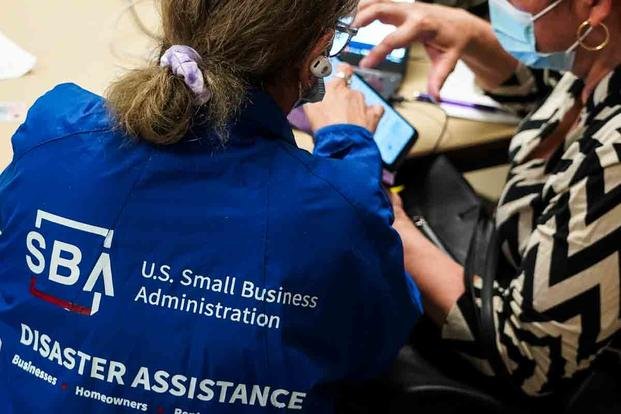According to the latest U.S. Census data, veteran-owned businesses make up 5.9% of all American businesses. They employ four million Americans, paying around $191.6 billion in annual payroll while generating nearly $1 trillion in receipts. In the private-sector workforce, veterans are 45% more likely than those with no active-duty military experience to be self-employed.
To help veterans get started or grow existing businesses, the SBA provides entrepreneurial training and mentoring in three key areas.
Entrepreneurial Development
SBA partnered with the Department of Veterans Affairs and the Department of Defense to develop a national entrepreneurship training program for transitioning service members as part of the new Transition Assistance Program.
Boots to Business is an introduction to entrepreneurship for active-duty service members, available to access through their base transition office. After a two-day, in-person foundational course, budding entrepreneurs can get access to a host of other SBA training courses and resources.
For veterans without base access, the SBA offers Boots to Business Reboot, a foundational program that will help them understand an entrepreneurial career while developing a sound business plan. Veterans can sign up for this course on the SBA website. Like the active-duty course, there are a number of optional courses available to continue a business education after taking a foundational class.
In a closely related effort, SBA and Syracuse University continue to expand the success of the Entrepreneurship Bootcamp for Veterans (EBV) program. EBV provides training to veterans who are starting or growing a small business, with programs targeted to post-9/11 veterans.
EBV has now expanded to universities across the country, including Texas A&M, UCLA, the University of Connecticut, Louisiana State University, Florida State University, Saint Joseph's University and the University of Missouri.
Access to Capital
The SBA is not itself a business lender, but its Community Navigator Pilot Program engages state and local governments as well as trusted partners like Syracuse University's Institute for Veterans and Military Families (IVMF) to provide economic assistance, financial training and other resources to struggling businesses.
Using a "hub and spoke" model, SBA funding will go to a trusted SBA partner like the IVMF that will deploy trusted advocates and financial aid to support small businesses that need help recovering from an economic disaster. This includes help finding access to capital, contracting, marketing and industry-specific training.
Government Contracting
Federal agencies set aside significant funds in contracting dollars to be awarded to businesses owned by veterans and by service-disabled veterans. These vet-owned businesses must be verified as a veteran-owned small business (VOSB) or service-disabled, veteran-owned small business (SDVOSB) in the VA's Center for Verification and Evaluation (CVE) to participate.
Bids for these contracts are still competitive, but the competition is between only VOSB and SDVOSB firms. The SBA offers resources for company contracting officers, as well as contracting tools to research and bid for these contracts. Other organizations offer full training courses for these kinds of funds.
The SBA has also created a series of online contracting guides and provides contracting counselors to help prospective and existing small businesses understand the basics about contracting with federal agencies.
The SBA reaches out to veterans through its 68 SBA district offices, 18 Veterans Business Outreach Centers (VBOC) nationwide, more than 1,000 Small Business Development Centers, 110 Women's Business Centers and some 12,000 SCORE business mentoring volunteers, more than 40% of whom are veterans.
For more information, visit the SBA veteran entrepreneur portal.
-- Blake Stilwell can be reached at blake.stilwell@military.com. He can also be found on Twitter @blakestilwell or on Facebook.
Want to Know More About Veteran Jobs?
Be sure to get the latest news about post-military careers as well as critical info about veteran jobs and all the benefits of service. Subscribe to Military.com and receive customized updates delivered straight to your inbox.















